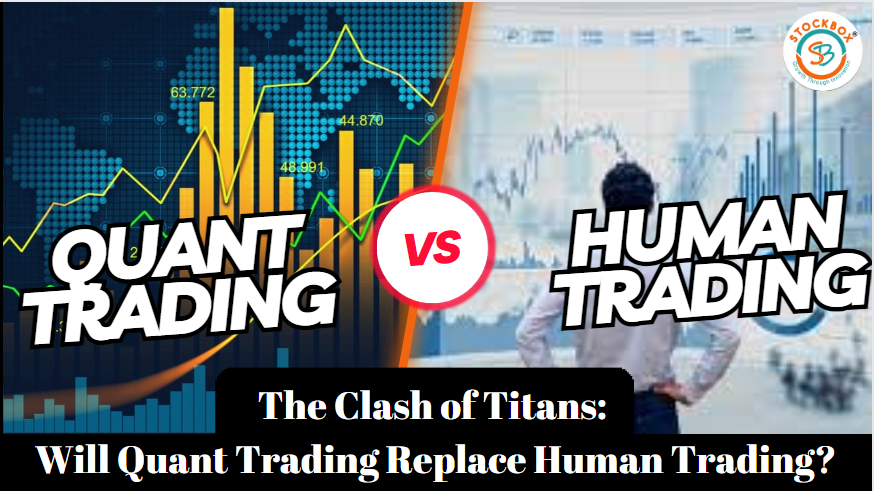In finance’s dynamic landscape, human traders clash with the growing wave of quant trading, shaping a monumental battle. Quantitative trading, or quant trading, employs complex mathematical models, algorithms, and vast data for investment strategies. But, Will Quant Trading Replace Human trading? Or will they coexist? Discovering answers, let’s delve into the realm of quant trading’s impact on human traders.
Quantitative trading employs intricate mathematical models, algorithms, and extensive data analysis to guide investment strategies. Quantitative traders rely on data-driven analysis to identify patterns, trends, and market inefficiencies, reducing dependence on human judgment. Mathematical frameworks aid in making objective decisions based on statistical data, reducing emotional biases and human errors.
Thanks to technological advancements and abundant data, quant trading has gained significant momentum in recent years. The capacity to analyze massive volumes of data in real-time, combined with lightning-fast execution, has drawn investors and institutions to embrace quant methods. The accuracy and speed with which algorithms can analyze data and execute trades provide significant benefits in terms of efficiency, cost savings, and the capacity to capitalize on short-term market opportunities.
While quant trading has great potential, human traders bring a distinct set of talents to the table that programmes cannot imitate. Human traders have the expertise, market intelligence, and ability to detect hidden trends and qualitative aspects that quantitative algorithms may miss. They can swiftly react to rapidly shifting market conditions and make decisions that algorithms may fail to reproduce. The human touch infuses the trading process with characteristics of imagination, critical thinking, and emotional intelligence.
The Human-Machine Synergy:
Rather than perceiving quant trading and human trading as rivals, there is a very high possibility for a peaceful union. The combination of quantitative models and human skills can result in significant synergy. Human traders may use algorithms’ speed and data-processing skills to provide qualitative insights, adjust to shifting market dynamics, and make delicate judgments using an in-depth comprehension of human behaviour and market emotion.
As technology advances, the trade landscape will undoubtedly change. But the question is still there Will Quant Trading Replace Human trading? Surely, Quant trading is anticipated to continue to expand and adapt, affecting financial markets. Human traders, on the other hand, remain a key force, providing a distinct viewpoint and a combination of abilities that complement quantitative techniques. The answer is to embrace cooperation, flexibility, and hybrid solutions that combine the best of both worlds.

